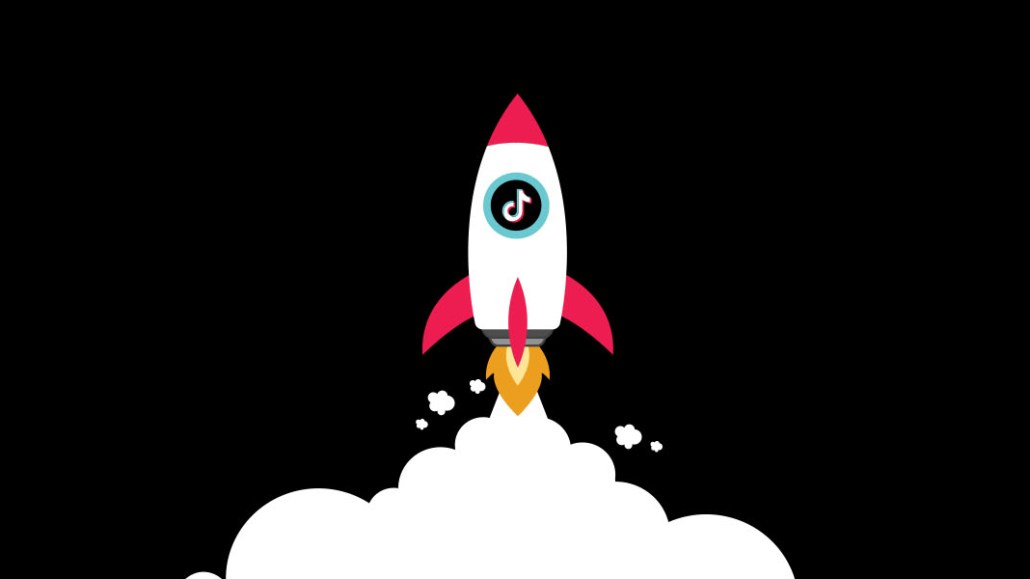Save 50% on a 3-month Digiday+ membership. Ends Dec 5.
Digiday Research: TikTok has already surpassed Snapchat in the eyes of brands and agencies

This research is based on unique data collected from our proprietary audience of publisher, agency, brand and tech insiders. It’s available to Digiday+ members. More from the series →
After a rocky start to its life as a public company, Snapchat has been enjoying a strong comeback lately, turning into a reliable source of revenue for publishers and making the case as a place for incremental spending during its most recent NewFront presentation in 2020.
But Snapchat may have to change how it is running its race to catch up with legacy platforms such as Facebook, Instagram and YouTube. That’s because in the eyes of marketers, Snapchat has already been lapped by TikTok, according to new Digiday+ research.
In May, Digiday polled 117 buy-side professionals about the role that social platforms play in their — or, in agencies’ case, their clients’ — businesses. The research revealed Snapchat and TikTok have both made it onto the short list of platforms that have significant traction among brands and agencies.
The two platforms have a lot in common, and the list of similarities between them is growing: TikTok owes a heavy debt to the vertical video format that Snapchat pioneered, and it has experimented in the past with many features that Snapchat first established, including stickers.
But the exchange goes both ways: Last November, Snapchat launched Spotlight, a feature designed to mimic TikTok’s user experience. By this past spring, Snapchat announced it was paying out $1 million per day to creators for content that was popular in Spotlight, in part to keep up with the billion dollars TikTok committed to its own creator fund. The past April, Snap CFO Derek Anderson said Spotlight had 125 million monthly active users, a number that surpasses the most recent publicly available data about the size of TikTok’s audience; in a lawsuit filed against the U.S. government last year, TikTok revealed it had close to 92 million monthly active users.
Yet despite being significantly younger — and nearly getting temporarily banned from the United States by the last presidential administration — TikTok has leapfrogged Snapchat in two significant ways. Higher percentages of brands and agencies that use TikTok say it is valuable for brand-building and for driving revenue.
Anecdotally, this dynamic persists among marketers that use both, but Digiday’s sample did not contain a statistically sufficient number of marketer respondents that post to both Instagram and TikTok. Digiday’s survey asked respondents about which platforms their brands (or their clients’ brands) posted to.
This momentum began building late last year, when marketers, noticing TikTok’s meteoric rise, began asking more about putting their budgets into the app. By the spring of 2021, it was well on its way to becoming a “staple” of social budgets.
Whether it grows into something regarded as an integral piece of most marketers’ plans remains to be seen. Aside from Facebook, Instagram and YouTube, just small percentages of marketers regard social platforms as valuable tools for driving revenue or brand-building. Indeed, there are meaningful differences in how agencies and brand regard the value of many of these platforms.
Ad position: web_incontent_pos1
This story has been updated to include detail about how the survey was conducted.
More in Marketing

Ulta, Best Buy and Adidas dominate AI holiday shopping mentions
The brands that are seeing the biggest boost from this shift in consumer behavior are some of the biggest retailers.

U.K. retailer Boots leads brand efforts to invest in ad creative’s data layer
For media dollars to make an impact, brands need ad creative that actually hits. More CMOs are investing in pre- and post-flight measurement.
Ad position: web_bfu



